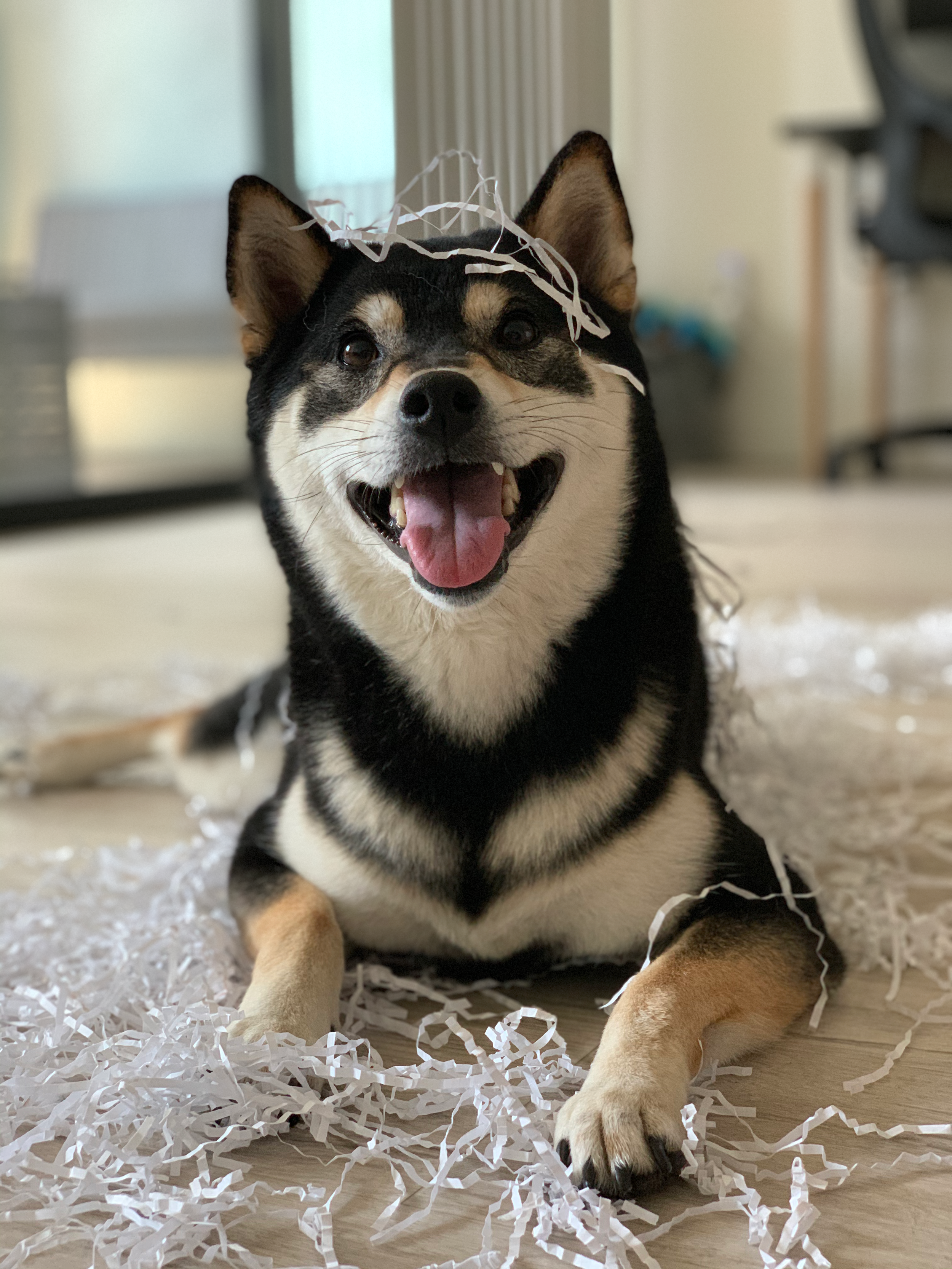Enforcing Good Behaviors
Training your pup is a must. It makes having a dog logistically easier, helps your pup be a good canine citizen, and can be a great way for you and your pup to bond and build trust! How do you make sure your pup doesn’t forget all their good manners the minute you're finished teaching them, though? Well, like learning anything new, it takes practice, patience, and repetition. Think about any language you may have learned (and then maybe forgotten).
Retaining and enforcing good behaviors can be challenging, especially when life gets busy and you’re dealing with new situations or limited time… or have a pup that’s particularly anxious, like Barak. We try to keep a couple guidelines in mind through our training work.
Regular Schedules
Moving between activities can be a fraught time for a pup since it introduces changes. For example, Barak, our older dog, struggles to keep calm during periods where we’re entering or exiting the apartment. In order to ease these transitional periods, we trained him to go to place and sit quietly as we’re getting things ready or coming home after an outing.
In order to help Barak remember and apply this training, we try to stick to a consistent schedule and make sure we follow the same patterns when we exit and enter the apartment. For example, rather than throw on our things and leave the apartment when we’re going out, we’ll first put our shoes by the door and get our coats ready. Doing this helps Barak recognize the situation and reminds him that he has his own routine - going to his place and waiting. In terms of our schedule, we try to maintain a regular routine, feeding the pups’ their meals and taking them on walks at the same times each day.
Know when to turn away
It can be very frustrating when the training you and your pup worked on fails. For whatever reason, your pup may ignore you, refuse to give you the behavior you’re looking for, or act out. Barak’s preferred method of protest is screeching and SoomSoom is digging in her heels. Don’t worry, though - it’s natural for your pup to disobey you now and then. The important thing to do in these instances is to respond the right way, setting your pup up for success in the future.
Repeated failure can leave pups frustrated and undo training you’ve worked hard on, so if your pup isn’t cooperating, you should give them (and yourself) time to reset, regroup, and come back fresh. Here are some steps you can take in the event of bad behavior:
Turn your back and don’t acknowledge the bad behavior. Any attention may teach your pup that the bad behavior will be rewarded.
If your pup fails, don’t just repeat your command. Wait and make it clear you’re starting fresh before trying again.
If, for whatever reason, they keep failing, stop the training session and start again some other time.
Limit your training sessions to 5-10 minutes. You’re looking for quality over quantity.
Calm, cool, collected
Don’t lose your cool with your pup. It can be easier to adopt a cool, calm demeanor during training sessions, but it’s a lot harder when you’re focused on something else and your pup starts acting out. It is really important that you act calm, even when you’re in super frustrating situations. A rash response can ruin a lot of the work you’ve done with your pup and won’t help your pup connect the behaviors that you’ve trained with what you expect from them during other, non-training situations.
Credit where credit is due
In addition to not encouraging bad behavior, make sure to reward your pup when they do something good - anything good. You don’t need to always reward with treats - indeed, your pup may prefer food, praise, toys, or something else. Try to figure out what your pup prefers and use it to reward them when they are giving you good behaviors.
When just starting out and during training sessions, you can be more generous with your reward. When you are looking to reinforce their good behaviors during everyday life, you can be more measured with your praise. You want them to know they’ve done the right thing, but not be overwhelmed or think they’ll always get a big reward every time they exhibit the behavior. Consistent, reasonable rewards are what you’re looking to give in order to build repeated good behavior.
Training Never Stops
Our suggestions might be best summarized as “training never stops.” We realize this can be frustrating, but it’s important to remember that your pup is constantly taking cues from you,so you need to be mindful of how you’re reacting to them and what you’re asking of them even when you aren’t in a focused training session. Don’t worry, this becomes easier with time… because while you’re training your pup, you’re also training yourself.


